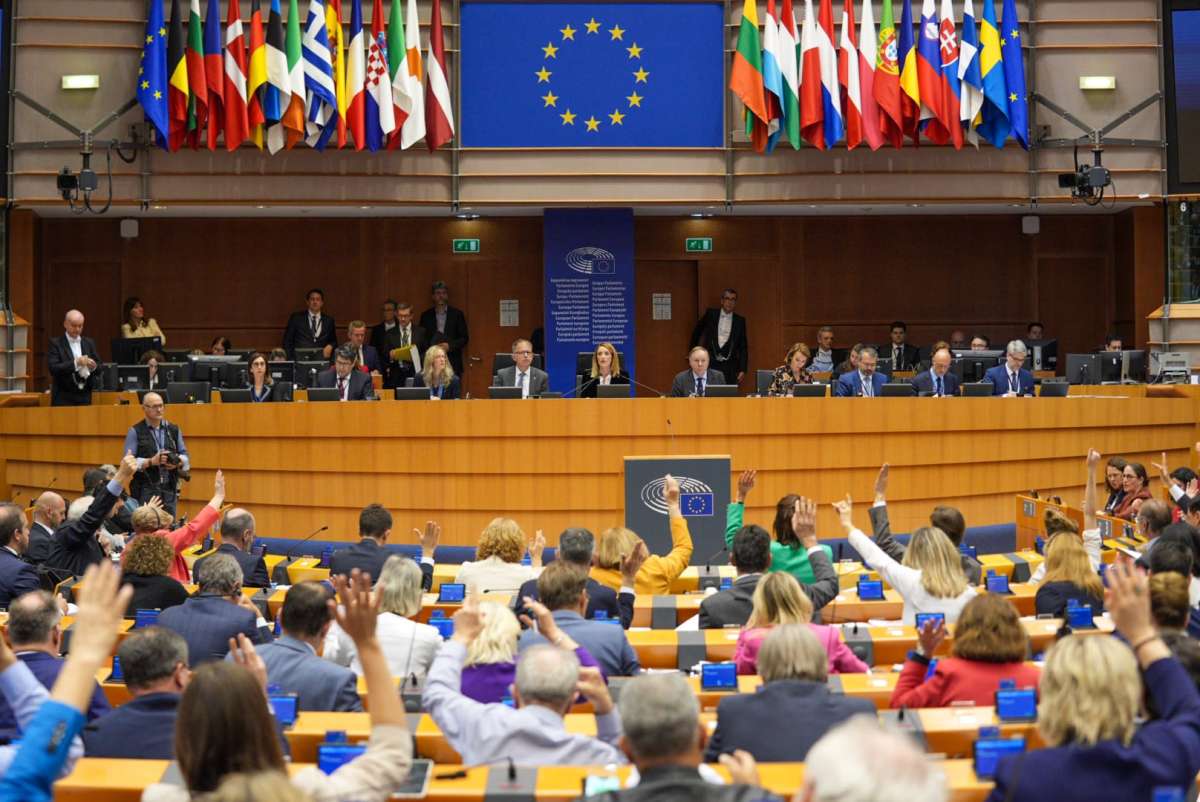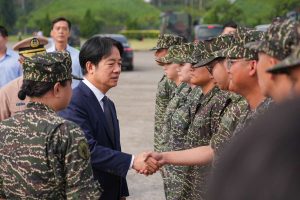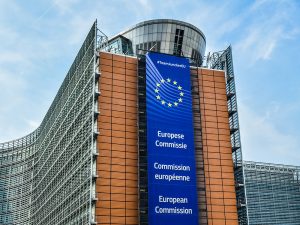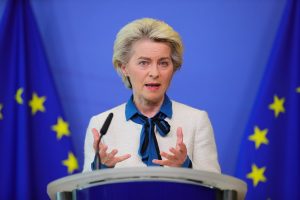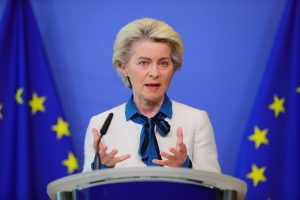Germany’s federal health minister, Karl Lauterbach, said the health organization should reduce its bureaucracy and use Taiwan’s professional expertise…reports Asian Lite News
The European Union and 26 countries have raised support for Taiwan’s participation during the 77th Edition of the World Health Assembly (WHA) in Geneva after China exerted pressure to prevent Taiwan from being invited to the conference in previous years, reported Taiwan News.
In past years, China pressurised to prevent Taiwan from being invited to the annual World Health Organization (WHO) conference in Switzerland.
However, since the COVID-19 pandemic, the number of countries saying the group’s “Health For All” slogan should also apply to Taiwan has been growing.
During the May 27-June 1 event, EU Representative Marc Pecsteen de Buytswerve said the WHO needed to promote international negotiation and cooperation, leaving nobody and no area behind, Taiwan News reported.
Germany’s federal health minister, Karl Lauterbach, said the health organization should reduce its bureaucracy and use Taiwan’s professional expertise.
Moreover, compared to last year, five more regions and countries have joined those, who are raising their voice in support of Taiwan.
The newcomers included, the EU, the Netherlands, Latvia, New Zealand, and Israel, reported Taiwan News citing a report.
Health ministers and government representatives from the United States, Canada, Japan, Australia, the United Kingdom, the Czech Republic, and Luxembourg also defended the case for Taiwan’s attendance.
The 26 countries and regions included 10 of Taiwan’s 11 diplomatic allies.
Taipei has not been invited, however, Health and Welfare Minister Chiu Tai-yuan visited Geneva for bilateral meetings with other delegations and for news conferences and exhibitions to support Taiwan’s case.
Tensions between Taiwan and China have been rising in the past few months. Last week, China launched two-day-long military drills on May 23, surrounding Taiwan in what it called “punishment” for so-called “separatist acts.
However, as tensions continue to escalate in the region, Taiwan remains steadfast in its commitment to safeguarding its sovereignty and territorial integrity against potential threats, utilising a combination of strategic foresight and robust defence capabilities, Focus Taiwan reported. (ANI)
EU states agree ‘prohibitive’ tariffs on Russia grain imports
EU states agreed on Thursday to impose “prohibitive” duties on grain imports from Russia in a bid to cut off revenues to Moscow for its war on Ukraine.
The European Union has hit Russia with multiple rounds of sanctions to inflict damage on Russia’s war chest following its all-out invasion of Ukraine in 2022.
The latest measure will “tackle illegal Russian exports of stolen Ukraine grain into EU markets,” the EU’s trade commissioner, Valdis Dombrovskis, said on social media.
The tariffs will also be applied to products from Belarus, which served as a staging ground for Russia’s attack on Ukraine.
But the tariffs will not apply to Russian grain transiting through the EU to countries outside the bloc, to ensure that food supplies for elsewhere, notably Africa and Asia, are not impacted. Russian fertilizer supplies were not targeted.
The European Commission proposed the measure in March. Under World Trade Organization rules, virtually all Russian grain has until now been exempt from EU import duties.
From July 1, the EU will increase “duties on cereals, oilseeds and derived products from Russia and Belarus to a point that will in practice halt imports of these products,” the council representing the EU’s 27 member states said.
The EU set this at a level of either around 90 euros (around $97) per ton for most cereals, or 50 percent of the value for other products.
“These measures will therefore prevent the destabilization of the EU’s grain market (and) halt Russian exports of illegally appropriated grain produced in the territories of Ukraine,” said Vincent Van Peteghem, Belgian minister for finance.
“This is yet another way in which the EU is showing steady support to Ukraine,” he added.
Russian agricultural imports into the EU burgeoned in 2023.
Last year, Russia exported 4.2 million tons of cereals and related agricultural products to the EU worth 1.3 billion euros.
And Russian grain exports to the EU rose from 960,000 tons in 2022 to 1.5 million tons last year after a surge in Russian production.
Despite the figures, it comprises only a very small share of the EU’s supply of such products, around one percent of the European market.
In stark contrast, domestic suppliers provide 300 million tons annually.
The EU has approached punitive action against Russia’s agricultural or fertilizer sector with great caution, fearing any moves that could hurt the global cereal market as well as food security in Africa and Asia.
But Ukrainian President Volodymyr Zelensky complained to EU leaders earlier this year, arguing it was unfair Russian grain maintained unrestricted access to their markets while Ukrainian imports faced limits.
Russia at the time warned against the tariffs. “Consumers in Europe would definitely suffer,” Kremlin spokesman Dmitry Peskov said in March.
ALSO READ-US lawmakers visit Taiwan in signal to China
